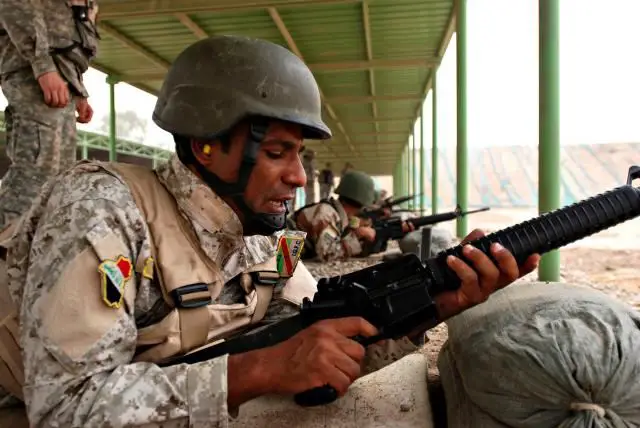The
United States Defense Department is preparing small arms M-16 and M-4
with ammunition for shipment to Iraq in response to a request from that
country’s prime minister, Pentagon spokesman Army Col. Steve Warren
said, Friday January 17, 2014. |
Nouri
al-Maliki asked for the help as extremists have launched devastating attacks
throughout the country.
In accordance with the security framework established when U.S. troops
departed Iraq in December 2011, discussions about ways to improve the
Iraqi military are ongoing, Warren said.
“No one has asked, nor have we offered direct military involvement
because of the underlying religious issues and extremist issues,”
Chairman of the Joint Chiefs of Staff Army Gen. Martin E. Dempsey told
NPR this week
In the past year alone, the United States delivered six C-130J aircraft
and a Rapid Avenger surface-to-air missile battery. Additionally, a total
of 140 M1A1 tanks have been provided between 2010 and 2012.
The situation in Iraq has deteriorated since U.S. troops left the country.
Suicide bombing have become more frequent and Iraqi government statistics
indicate that about 8,000 Iraqis were killed in 2013.
Fighting in Anbar province intensified at the end of 2013 and the Islamic
State of Iraq in the Levant -- an al-Qaida affiliated group -- took control
of Fallujah and made inroads in Ramadi, the provincial capital.
Dempsey said he was disappointed by the setbacks in Iraq, but also noted
he hadn’t yet given up on the country.
“It’s a little premature to declare that this conflict in
Ramadi and Fallujah portends the collapse of the state of Iraq or an irreversible
setback,” the chairman told NPR’s Tom Bowman.
|















